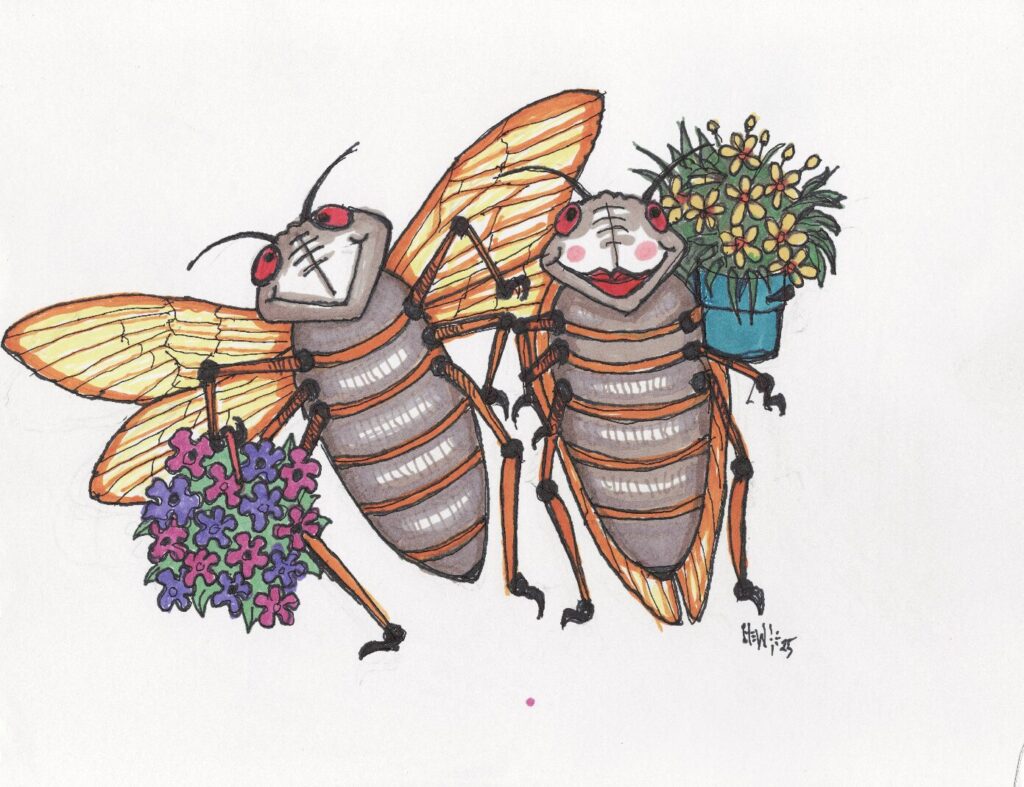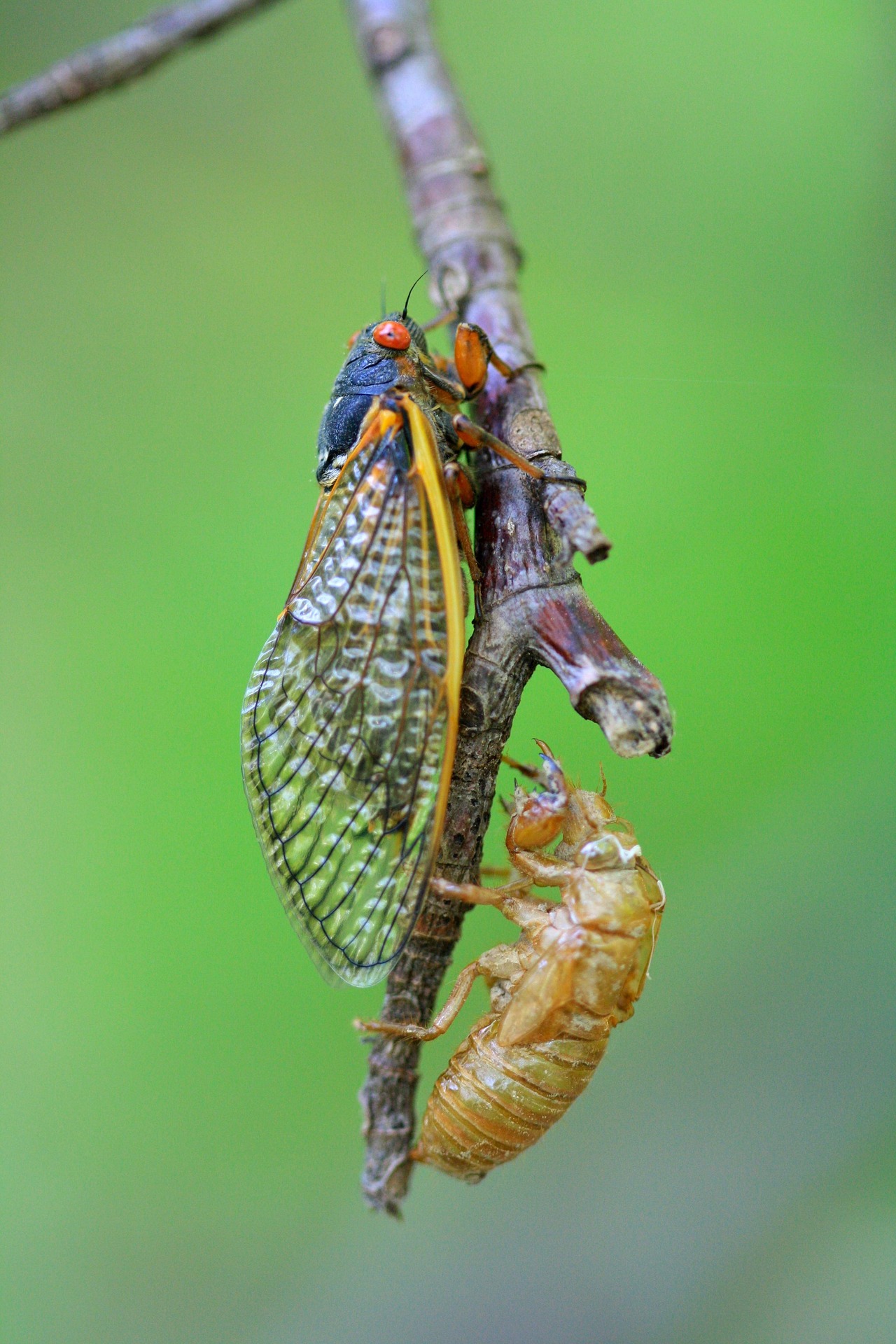

BROOD XIV (14)
The Cicadas are coming! The Cicada are coming! Do you remember the last time the cicadas came to Cape Cod? Well, SOARES NURSERY was a hot spot for cicadas during the last emergence in 2008! It was a sight AND sound to behold! At Soares Flower Garden Nursery, we are embracing this 17-year event as a chance to experience one of nature’s phenomena. It will be our last chance to witness these amazing creatures until 2042!
Soares Nursery will be working with UMass entomologists to record data for the emergence of the cicada, and will be a reporting area as the activity starts. Additionally, we are working with Russ Norton of the Cape Cod Extension Service to help monitor soil temperatures and track the emergence. Here at the Nursery, we will have activities, lectures. Cicada information, and door prizes! So, come on in, and join the fun!
Cicada Fun Facts:
• First recorded by European settlers in 1634.
• BROOD XIV (14) will emerge in regions from KY, GA, IN, MD, NC, NJ, OH, PA, TN, VA, WV, and MA.
• In MASSACHUSETTS, the species Magicicada septendecim is the primary species that will emerge in mid-May through mid-June when soil temperatures reach about 60 degrees.
• The duration of the emergence is about 4-6 weeks.
• Their HOST PLANTS include OAK (their favorite), Apple, Birch, Black Locust, Dogwood, Hickory, and Maple.
• There have been reports of 12,000 to 1.5 million cicadae emerging per acre.
• Cicadas provide an abundance of food for birds, rodents, coyotes, ants, beetles, racoons, squirrels, and turtles. They are a feast for predators! More food = more babies born!
• Birds will eat cicadae rather than caterpillars. Caterpillar density increased dramatically after an emergence. Bird populations grew after an emergence. TURKEY POPULATIONS INCREASED BY 95%! This is great for us because TURKEYS EAT TICKS!
• WEAR YOUR EARPLUGS! Male cicadas make the most noise! They are one of the loudest in the insect world…80-120 decibels! For reference:
o Traffic is 80 decibels
o A rock concert is 120 decibels!
• The NOISE IS THE LOUDEST during the day when it is warm.
• Cicadas can be fried and eaten, but DO NOT if you are you allergic to shellfish!!
• They enrich our soil with nutrients when they die and decompose.
What to do if your yard is part of the emergence?
• Young trees (3-5 years old) might need protection. Place protective netting over them to avoid excessive tip damage. Regular bird netting WILL NOT work. The mesh needs to be smaller.
• Mature trees are not affected except at the tips. Cicadas cut a small slice and lay their eggs there. Some research suggests that cicadas are natural pruners for mature trees.
• They rarely lay eggs in shrubs. Perennial, annuals, and vegetable plants are not affected.
• There is no need to spray. It is not effective and would harm beneficial insects and pollinators.
• Cicadas do not bite! They just fly around and bump into you. Just brush them off!
• Your pets are safe – just don’t let them eat too many.
Stay tuned for our event and activity schedules.
Come experience this natural event with us at Soares Nursery!


